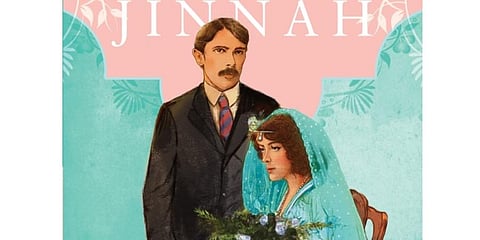The enigma of Mrs 'Ruttie' Jinnah: A defiant 20th century revolutionary
Among the pioneer female revolutionaries of early 20th century India, Rattanbai Maryam Jinnah, wife of Pakistan’s founder, is possibly one of the most understudied and underappreciated figures in modern South Asian history. Being reserved, Jinnah never publically talked about his personal life. It took the authors 12 years to collect enough material—extensive research, interviews with historians, family members and lawyers—to put together this unique biography of an elusive life.
Ruttie, as she was known, was a scion of one of then-Bombay’s richest Parsee families. Her father, Sir Dinshaw Petit, was a prominent industrialist and textile magnate. At the Orient Club, he became fast friends with Jinnah, who was 23 years older than Ruttie. When Jinnah asked Petit for Ruttie’s hand in marriage, the former filed a writ restraining him from meeting his daughter. This did not stop the couple from seeing each other. Reportedly, Ruttie proposed to Jinnah at the Taj Mahal Hotel ballroom on her 18th birthday. Two months later, she accepted Islam and married him against her family’s wishes. At the age of 41, Jinnah’s marriage ‘shook India’.
Thereafter, Ruttie accompanied her husband at all important political meetings and engagements. Subsequently, she became the only politically active wife of any top-level Indian politician, participating in protests against Governor Willingdon’s memorial and BG Horniman’s banishment. Ruttie was also offered the post of vice-president of the All India Trade Union Congress, which she declined. An anti-British nationalist, apart from being an eloquent trendsetter, she was the envy of many.
The authors further share anecdotes about her cordial relationships with well-known public figures such as Gandhi, Motilal Nehru and Annie Besant. Sarojini Naidu called her “The Flower of Bombay”, and her closest friends included Naidu’s daughter Padmaja, and Vijaya Lakshmi Pandit. Ruttie was also passionate about a number of social causes, such as women’s liberty, labour rights, animal protection, education and environmental issues.
The year 1928 saw Mrs Jinnah in the throes of terminal illness. She tragically died soon after her 29th birthday. His wife’s untimely death was the greatest personal loss in Jinnah’s life. Having never remarried, Jinnah would visit Ruttie’s grave every Thursday afternoon till he was in India.
It is believed that the reason for Ruttie’s lost legacy is her sister-in-law, Fatima Jinnah, who destroyed all her photographs and belongings after her brother’s death. Within about a decade of Ruttie’s death, Jinnah fell out with their only child—Dina—who later married Neville Wadia. However, Mrs Jinnah’s legacy is immortalised in several trailblazing historical events that she indirectly influenced and the strong ideas that she left behind.A first-of-its-kind glimpse into a little-known private life, the book paints a vivid picture of Mrs Jinnah, and through her, Mr Jinnah and the entire Indian nationalist politics of the first half of the 20th century.

